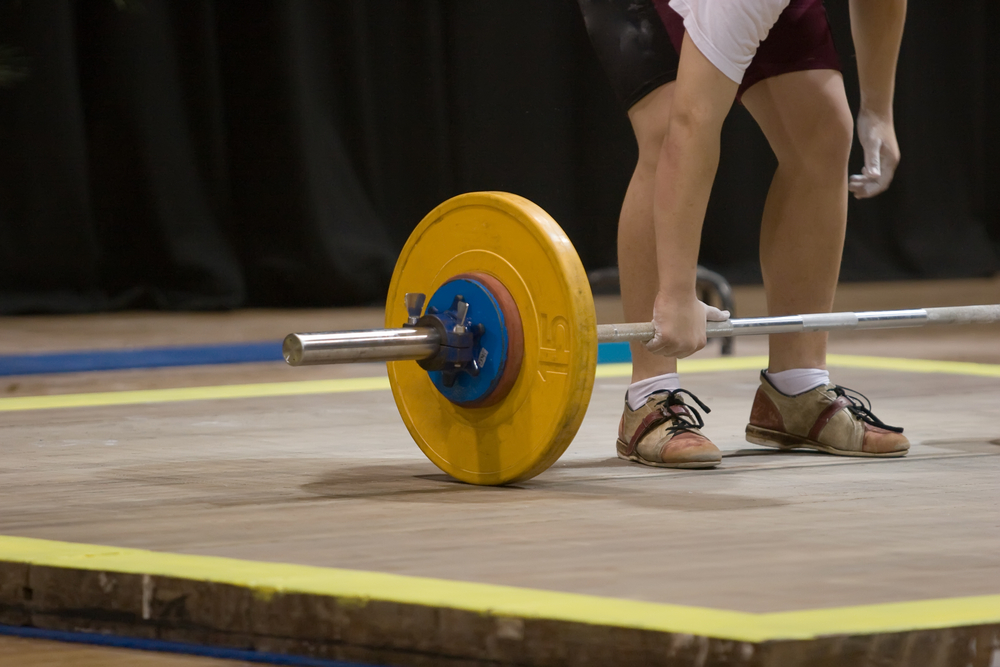You see it all the time. The big guy with the hairy back starts screaming and yelling, grunting and screeching…and he hasn’t even grabbed the bar yet! He stomps around the room banging his chest preparing himself for a heavy attempt on something like a leg press or lat pull down. And everyone else in the room pretends not to notice.
Don’t make eye contact.
That’s the worst thing you can do. It only feeds the beast. When a fire-breathing dragon is in the depths of a psych-up your only hope is to play dumb.
The trouble, of course, is that you aren’t dumb. You’re probably wondering why this dude is going so far out of his way to make himself look like an idiot. You stare at him. You ponder. And then it happens.
He sees you.
It’s only a split second, of course. Then he’s back to his ritualistic growl. But you and he both know it happened. You’ll lie awake tonight in cold sweats. Even though it may cost you many hours of good sleep, the question that led you to that fateful moment is a good one.
“Why would you “psych up” for a heavy lift?”
And, as a follow up, does it actually help you as much as HE thinks it does?
Psyching Up for Sports Psychology
Emotions play a remarkably important role in sports. From the hyped up football player to the calm golfer, finding the right emotional state that is appropriate for the task at hand is central to your ability to succeed.
In technical (sports psychology) terms, when I speak about “psyching up” for a heavy lift, I’m really discussing something called “arousal control.” Your ability to control your arousal levels, your stress levels, and your overall emotional state WILL determine the outcome of whatever sport you decide to engage in.
Simpleton athletes only understand the benefits of banging their chests before they bench press. But a more sophisticated athlete will recognize that sometimes the appropriate control on your arousal levels is to bring them DOWN, not pump them up.
This is particularly true where technical skill is required.
A basketball player going for a 3-point shot needs a calm clear mind, not a frantic gorilla mind.
The athlete needs to be able to go into hyped-up mode when it is useful, but immediately switch back to a mellow state on cue.
Installing a Light Switch in Your Brain
You must develop the skill of being able to turn on and off the aggressive response. Going for a heavy squat or  deadlift requires a ramping up of your arousal levels. Putting on the golf course certainly doesn’t!
deadlift requires a ramping up of your arousal levels. Putting on the golf course certainly doesn’t!
It would be better to install a dimmer switch in your brain. That way you can control, in fine detail, exactly how much emotion you allow – in direct relation to the sporting task in front of you.
Don’t make the mistake of believing that the world of sports is split in two. Some sports are aggressive and primal. The rest are all just extensions of Chess.
That’s bull and you know it.
Olympic weightlifting is the perfect example of a weird sport that hybridizes high and low arousal needs.
Arousal Control in Olympic Weightlifting
On the one hand, weightlifting is a strength sport. You lift really heavy weights – really, really heavy. You wear weight belts, you yell and scream, and you slam those weights down hard on the platform, throw your arms up victoriously into the air, and revel in your greatness. (Maybe that’s just me!)
On the other hand, it is a technical sport. The complexity of a well performed snatch is on a par with the best of gymnastics, the pole vault, and archery.
The strength sport side of weightlifting requires a ramped up emotional state (with its increased adrenalin levels) just to move the bar at all. But the technical sport requires you remain poised and in FULL control, allowing the body to do what it was trained to do and not get in its way.
How Do You Control Your Emotions For Sports?
It’s all well and good to tell you how important Arousal Control is for your sporting success. But HOW do you actually control your emotions? I mean, if it were so easy, no one would ever get depressed, right?
That’s true. But it isn’t as hard to manage your emotions as you might think.
I believe there (at least!) three key things you can do to learn how to control yourself:
1. Meditate every day – See my Breaking Muscle article, The 3 Step Meditation Plan.
 2. Face your fears – To use a weightlifting example, if you’re trying to learn how to snatch (and you’ve gotten past the early beginner phase), go heavy! You MUST work at the highest weights you can honestly do with good form as often as possible. As I mentioned in last weeks article, having good technique at light weight isn’t the point. You need to be able to have great technique at your heaviest weights. To do that requires you honestly TRY it as often as you can.
2. Face your fears – To use a weightlifting example, if you’re trying to learn how to snatch (and you’ve gotten past the early beginner phase), go heavy! You MUST work at the highest weights you can honestly do with good form as often as possible. As I mentioned in last weeks article, having good technique at light weight isn’t the point. You need to be able to have great technique at your heaviest weights. To do that requires you honestly TRY it as often as you can.
3. Practice “mindfulness” – In every moment of every day, try to BE there in the moment. Doing dishes? Only think about the dishes. Don’t let your mind wander. Focus only on the task at hand, not what might happen, or this or that, just notice your hand holding a sponge washing the teriyaki chicken off that bowl.
Conclusion
I’m not against a lifter “psyching up” for a lift. But I AM against a lifter who is not honestly in control of their emotional state.
Here’s a test: If you can psych up for a heavy clean, still have great technique, AND get right back to a happy-go-lucky attitude – immediately! – when you screw up and miss…THEN you are in control. Otherwise, it’s gonna take some work on your end.
No matter what you do, please don’t spend 30 minutes yelling and giving other people in the gym nightmares about hair-backed primates.
Weightlifting is supposed to be sophisticated.






